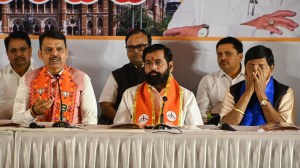Private lives
A serious discussion of the trade-offs between privacy and security is long overdue in India
A serious discussion of the trade-offs between privacy and security is long overdue in India
Even as NSA whistleblower Edward Snowden continues to resist the extradition order from the US and plots his path from Hong Kong to Russia and then somewhere else,his disclosures have set off serious discussions around the world. The extent to which governments can scan citizens information is a contentious issue,and different countries have their own normative thresholds.
PRISM was possibly one of the largest government surveillance efforts ever,coopting companies like Facebook and Google. Phone and internet data were being silently collected and analysed. But while the scale of the US effort cannot be matched,India,too,has reportedly been using a Central Monitoring System CMS to patrol digital data,for use by intelligence and security agencies,and it doesnt stop at metadata but is empowered to collect actual information. Unlike in the US and Europe,privacy is feebly protected by Indian law. Some of this spying is inevitable for national security,and in fact,the American surveillance programme has allowed them to tip off countries like Germany to their own internal threats. India too claims to have successfully thwarted terrorist plots on the strength of its data-gathering.
Privacy,as a concept,has different valences across contexts. It is linked to human rights and dignity in parts of Europe; Germany has a unique sensitivity to the issue,given its history of Stasi spying and Nazi excess; the French have long been pushing for a right to be forgotten online. The US has a more pragmatic approach to privacy,centred on protection from harm. India,like many other countries in the developing world,is lax on the matter; governments have long had access to small and large details about citizens lives,no questions asked,for the sake of more efficient welfare delivery. The UID project is merely an extension of that logic. There has been little outcry over the states sweeping powers to intercept phones and access call data,which have not always been put to responsible use. But muffled as the demand for privacy now is,it is bound to pick up as we live more digital lives; and the Indian state would do well to proactively institute safeguards. They must implement data protection,judicial oversight,and tight security of personal data.
- 01
- 02
- 03
- 04
- 05































